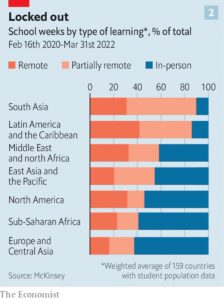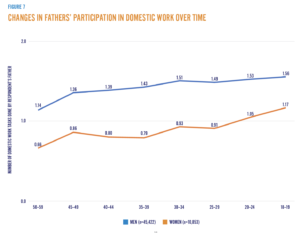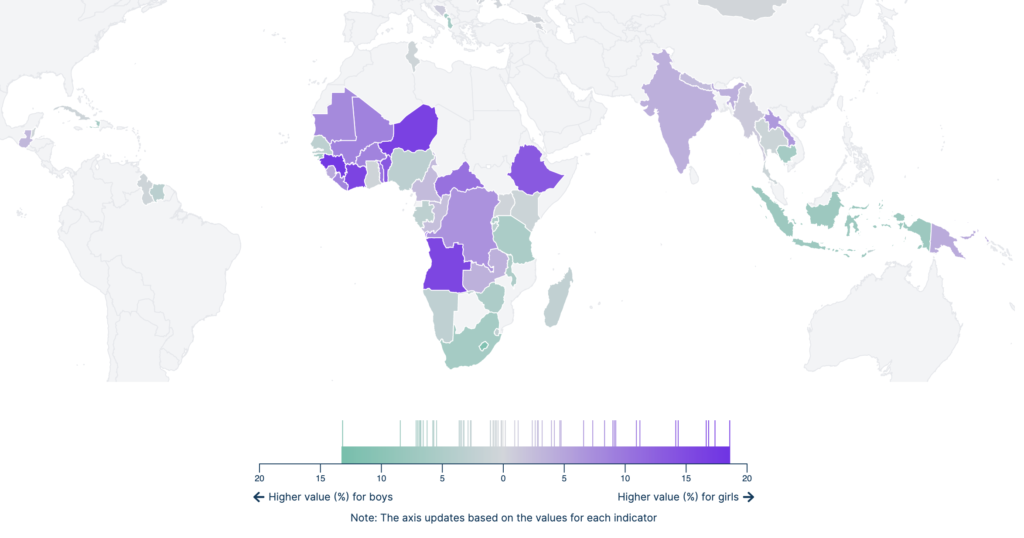In honor of slowing down to rest and rejuvenate, we are keeping the July Puggle short and sweet with just eight links for you — some reflections on the current education environment, policy reactions, rethinking gender norms, and resources you may find useful.
Reflections on the current education environment

1. The Economist looks at how Covid learning loss has been a global disaster. Millions of children are still out of school and the costs are stacking up. Here is a useful thread on the findings.
2. Our very own Erin Ganju and colleague Caitlon Baron reflect on What Europe can learn from school projects in the Global South on how to give out-of-school children a second chance.
“children can catch up on three years of school in a single year if they can do so in a joyful learning environment full of love and care” – Caitlin
“Promoting education is the best way we can ensure people develop relevant solutions that meet the needs in their local communities. That’s why education is such a pressing global issue, not least in the fight against climate change and inequality.” – Erin
Reactions
3. African leaders launch the Education Plus initiative, which calles for “free and quality secondary education for all girls and boys in sub-Saharan Africa by 2025; universal access to comprehensive sexuality education; fulfilment of sexual and reproductive health and rights; freedom from gender-based and sexual violence; school-to-work transitions, and economic security and empowerment.” So far, ten countries have committed to the initiative.
4. Kevin Watkins urges the UN to consider Free school meals to alleviate global hunger as part of the Transforming Education Summit.
“Feeding children in school can protect them from malnutrition, increase enrolment, reduce dropout rates and improve learning…Much of the infrastructure for delivering school meals is already in place.”
Rethinking gender norms

5. Equimundo (formerly known as Promundo) published findings from its latest International Men and Gender Equality Survey.
The headline findings are a mix of bad news (“Many men support equality in the abstract but defend their privilege and the status quo in practice”), good news (“Women and men who grew up seeing gender equality in their households as children hold more equitable attitudes”), and solid opportunities for change. Education is one vehicle, since “Household decision-making is more equitable when women have more education and greater economic independence.” And “Men’s health and well-being are harmed by restrictive norms related to gender roles and masculinities” because they are linked with harmful practices like risk-taking and substance abuse and furthermore provide stressors about providing for and protecting the family. This “provides a tremendous incentive for men to be allies in the progress toward healthy masculinity and gender equality.”
6. A report from InteGRAL looks at what alternative masculinity looks like in India.
“According to our research, the vision of an alternative masculinity is centred around three main themes: First is an express rejection of violence; second is contributing positively to the well-being of the family; and third is the ability to embrace the wide variety of differences in gender and other identities.”
Resources
7. The Population Council launches the Adolescent Atlas for Action. Check it out for “essential information on adolescents at global, national, and sub-national levels for over 100 countries.”

8. Aga Khan Foundation has launched a global Learning Hub on Early Childhood Development, Which includes courses, videos, documents, and webinars — in many languages!
